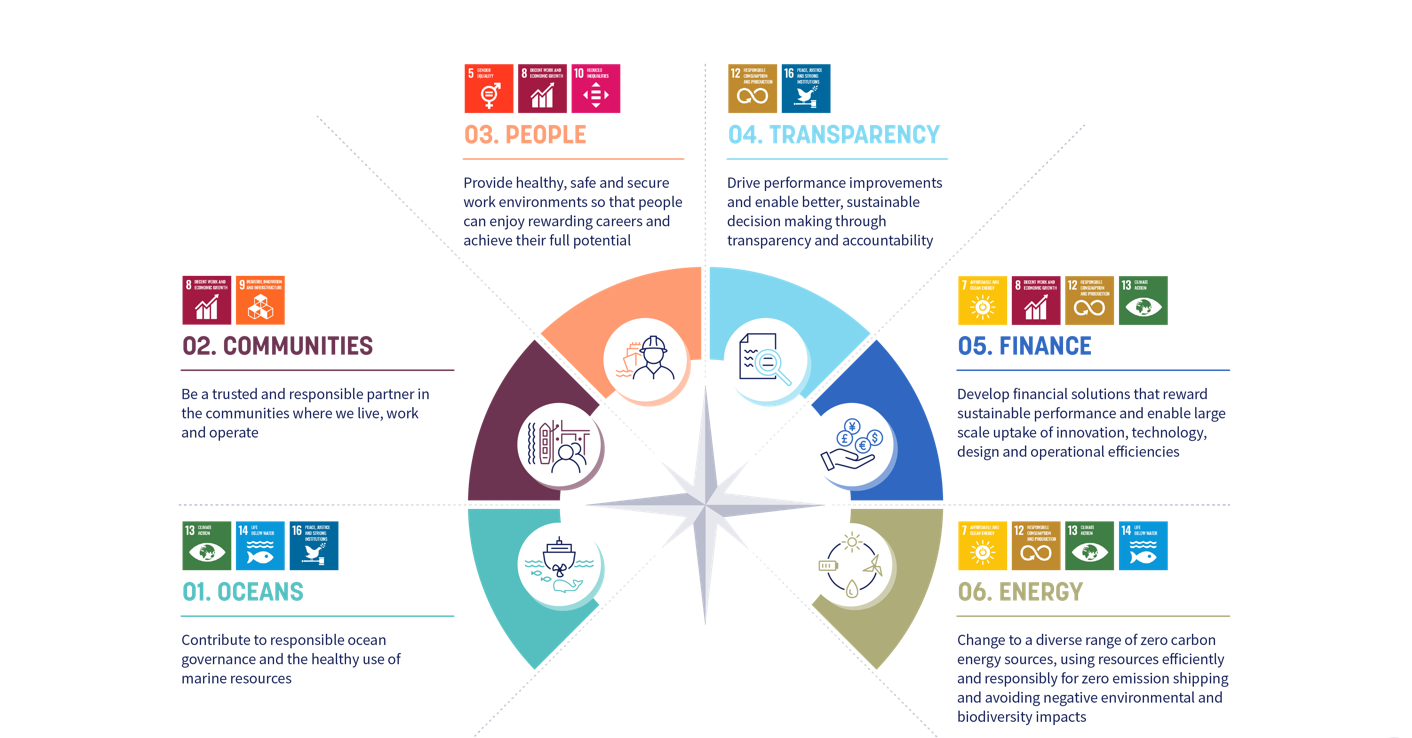During the 2023 GREEN4SEA Athens Forum, Mr. Andrew Stephens, Executive Director, Sustainable Shipping Initiative, highlighted that shipping needs sustainable decarbonisation that takes into consideration the different externalities created in the development of new fuels and technologies.
Who is the SSI?
The Sustainable Shipping Initiative (SSI) is a multi-stakeholder collective, founded in 2010, that brings together leaders across the entire shipping ecosystem to catalyse change and contribute to a more sustainable maritime industry.
We have spent 12 years looking at everything, from seafarers’ rights to circularity, sustainable ship recycling and decarbonisation. We believe that a sustainable shipping sector is a resilient shipping sector and achieving this requires action and collaboration across the entire maritime ecosystem.
By taking on different parts of the sustainability puzzle, our current working groups strive to create a sustainable future for the sector across the environmental, social, and socioeconomic pillars.
In 2021, we developed the Sustainability criteria for marine fuels to guide future fuel choices and ensure that the industry decarbonises sustainably. The 15 sustainability criteria guide companies on the various environmental, social, and socioeconomic impact areas that should be considered throughout the entire well-to-wake lifecycle of a fuel.
But fuels are just one part of the decarbonisation transformation. Our ship lifecycle working group takes on emerging issues within this. We released a report exploring shipping’s transition to a circular industry. To further assist the industry’s decarbonisation, we are exploring steel use and the potential for steel circularity in the shipping industry this year, with a publication forthcoming.
Seafarers’ rights is the third piece of work that we’re focused on. This work addresses the labour and human rights not currently covered by regulations but afforded to onshore workers. The Delivering on seafarers’ rights Code of Conduct, developed by the Institute for Human Rights and Business (IHRB) and SSI, in collaboration with the Rafto Foundation, alongside the self-assessment questionnaire and tool, developed in collaboration with RightShip, generate a greater understanding of seafarers’ rights and welfare obligations and allow for progress to be tracked and benchmarked.
The Roadmap to a sustainable shipping industry
In 2016, the SSI developed the Roadmap to a sustainable shipping industry. The Roadmap acts as a compass for the maritime sector’s sustainability journey across 6 vision areas: Ocean, Communities, People, Transparency, Finance, and Energy. It is a living tool that scans for emerging issues and tracks progress on long-term transformation to ensure collective action towards unified goals.

Future-proofing shipping
The biggest challenge faced by the maritime sector today is decarbonisation. There is still much uncertainty around what fuels will be viable and investment decisions are coming up. We are one investment cycle away from 2050 and with vessels having a lifespan of up to, and beyond, 30 years vessels built today will be at sea by 2050. This is a pressing and urgent issue for shipping.
A sustainable shipping industry is not only possible but necessary. Food, medicine, and construction materials are only some of the products carried and moved around the world by sea. Shipping will remain a critical sector in the future but it needs future-proofing. Rising sea levels create risks for port infrastructure. Rising temperatures and ocean acidification are causing changes to our oceans that will inevitably alter how the sector operates. On land, we may see fuel sources diminish or disappear, materials become more costly, and any other number of impacts that we haven’t thought of that may be reverberating across all sectors.
It’s a difficult transition, but one that also has significant potential for supporting the global energy transition. We need shipping in order to keep planetary warming to below 1.5°C. Decarbonised, resilient, and sustainable supply chains can enable an adaptable and sustainable global system. But this needs to be built in – into ship design, alternative fuel development, new port infrastructure, etc.
According to the Getting to Zero Coalition, we will need 5% of the alternative fuel mix in shipping by 2030 to be on a pathway to zero by 2050. There are positive signals of change already. Some shipping lines are rerouting to avoid whale strikes, and certain ship owners have started choosing a clear set of fuels to focus on in terms of low and zero-carbon. This helps signal clear demand requirements, unlocking production and alleviating supply chain uncertainty. First-mover actions are key.
No single organisation can solve this alone. Many of the challenges that shipping faces today have already been faced by other sectors, whether it’s automotive or aviation. We have the opportunity to collaborate and coordinate action across stakeholders and sectors to collectively futureproof shipping and ensure that it continues to meet current and future generations’ needs. Let’s make the most out of this opportunity and transform our sector, together.
Above article has been edited from Mr. Andrew Stephens presentation during the 2023 GREEN4SEA Athens Forum.
Explore more by watching his video presentation here below
The views presented are only those of the author and do not necessarily reflect those of SAFETY4SEA and are for information sharing and discussion purposes only.

































































